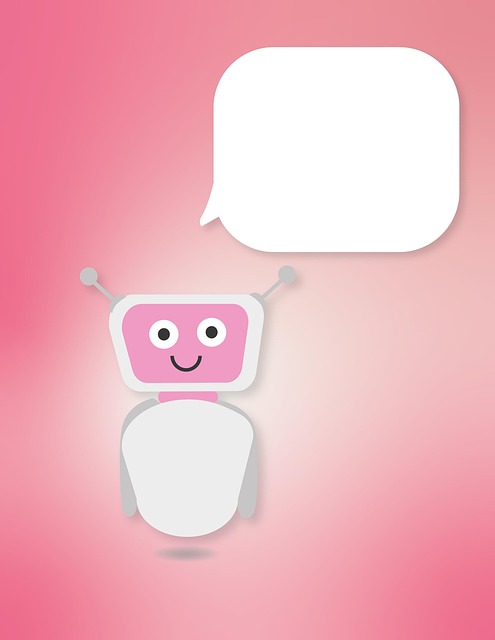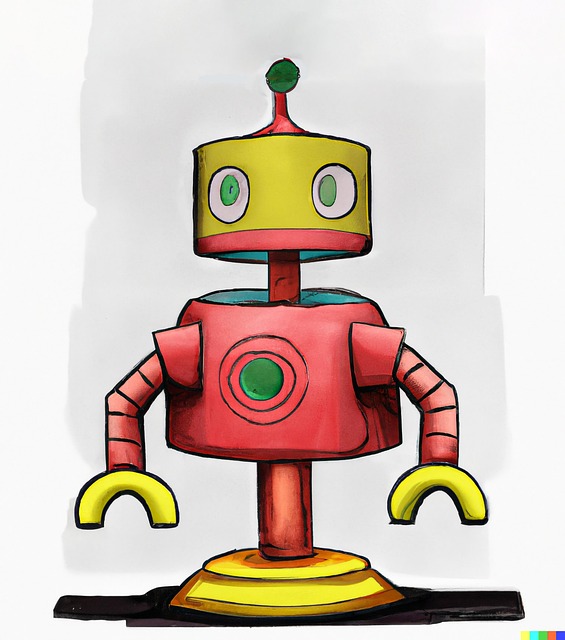ChatGPT transforms code generation, offering developers automation, insights, and debugging aid. Prompt preparation is key for precise results; users should be specific and detailed in their requests. It benefits both experienced developers and beginners, revolutionizing education through coding exercises and report formatting. Integration requires standardized testing to ensure accurate, reliable code. Balancing AI assistance with active learning ensures adaptability in a fast-changing tech landscape. Integrating ChatGPT can streamline development, offering time savings, real-time feedback, and problem-solving support.
Discover the power of generating code snippets with ChatGPT, a revolutionary AI model. This article explores how ChatGPT can assist developers in writing clean, efficient code across various languages. From understanding its capabilities to crafting precise prompts, you’ll learn strategies for effective utilization. We delve into challenges, limitations, and integration methods, ensuring you harness ChatGPT’s potential to streamline your development workflow. Boost productivity and explore the future of coding with this game-changing tool, ChatGPT.
- Understanding ChatGPT's Code Generation Capabilities
- Preparing Prompts for Effective Code Snippets
- Leveraging ChatGPT for Various Programming Languages
- Overcoming Challenges and Limitations
- Integrating ChatGPT into Your Development Workflow
Understanding ChatGPT's Code Generation Capabilities

ChatGPT’s code generation capabilities have revolutionized the way developers approach coding tasks. This AI language model can generate clean, functional code in various programming languages based on natural language prompts. It achieves this by understanding context, identifying patterns, and applying statistical inference basics to predict code structures. The model has proven useful for automating repetitive coding chores, offering insights into different coding styles, and even assisting with debugging.
However, it’s crucial to remember that ChatGPT is a tool, and like any online research ethics-driven resource, its output should be verified and validated. While it can generate code quickly, it may not always produce error-free or optimized solutions. Developers should review and test the generated code thoroughly before implementing it in production environments. Moreover, understanding the limitations and potential biases inherent in AI models is essential. For instance, when dealing with complex tasks like lab report formatting, ChatGPT might struggle to capture all nuances, requiring human intervention to ensure accuracy and precision. Visit us at public speaking workshops anytime for more insights into leveraging AI tools effectively while maintaining high standards.
Preparing Prompts for Effective Code Snippets

Preparing prompts effectively is key to extracting valuable and accurate code snippets from ChatGPT. To get the best results, users should be specific and detailed in their requests. Clearly defining the desired programming language, functionality, and any unique requirements sets the stage for a productive interaction. For instance, instead of asking for “a Python script,” specify the task: “Develop a Python script to process CSV data, filter out rows with missing values, and calculate mean values for each column.”
This precise approach allows ChatGPT to generate code tailored to specific needs. By incorporating adapted teaching methods and blending learning benefits through interactive coding exercises, users can enhance their understanding of concepts. Moreover, the philosophy and ethics discussions that arise from these interactions encourage critical thinking about AI-generated code. So, if you’re looking to master this art, consider visiting us at flipped classroom models anytime for more insights on leveraging ChatGPT in education.
Leveraging ChatGPT for Various Programming Languages

ChatGPT has revolutionized the way developers interact with code generation, offering a powerful tool for writing programs across various languages. Its versatility extends to numerous programming languages, making it an invaluable asset for both seasoned developers and those new to coding. This AI-powered assistant can generate code snippets in popular languages like Python, JavaScript, and Java, providing a head start on project development.
For instance, users can prompt ChatGPT to create functions, classes, or even entire modules, saving time spent on boilerplate code. Moreover, it facilitates learning by allowing coders to experiment with different syntax and structures. In an e-learning platform reviews context, students can use ChatGPT to explore coding concepts and practice problem-solving without relying solely on static text. Even for specialized tasks like lab report formatting or adherence to bibliography formatting rules, ChatGPT can offer guidance, ensuring users produce well-structured and correctly cited content.
Overcoming Challenges and Limitations

Despite its remarkable capabilities, integrating ChatGPT into various applications isn’t without challenges and limitations. One significant hurdle lies in ensuring the accuracy and reliability of generated code snippets, especially as they can directly impact software functionality and user experiences. Standardized testing and validation procedures become crucial to mitigate risks associated with inaccurate or incomplete responses. Developers must employ meticulous citational methods comparison to verify the origin and credibility of information provided by ChatGPT, thereby fostering transparency and accountability in the AI-driven coding process.
Moreover, while ChatGPT excels at generating code, it might struggle with complex problem-solving scenarios that demand a deep understanding of specific domains or nuanced requirements. This can lead to test-taking anxiety relief for developers who rely heavily on the tool without cultivating their own critical thinking skills and knowledge base. Encouraging users to balance AI assistance with active learning and participation in critical thinking exercises is essential to overcoming these limitations and ensuring long-term adaptability in a rapidly evolving tech landscape.
Integrating ChatGPT into Your Development Workflow

Integrating ChatGPT into your development workflow can streamline and enhance various stages of the coding process. This AI-powered language model, developed by OpenAI, excels at generating code snippets based on user prompts, making it a valuable tool for developers across different programming languages and projects. By leveraging ChatGPT, developers can save time on repetitive coding tasks, generate high-quality initial drafts, and even get assistance with problem-solving and debugging.
One area where ChatGPT shines is in providing real-time feedback and suggestions. As you type your code or describe a functionality, ChatGPT can offer relevant examples, point out potential bugs or inefficiencies, and suggest alternative approaches. This interactive experience not only accelerates development but also fosters learning—especially for newcomers to coding. Moreover, ChatGPT’s ability to generate code snippets tailored to specific requirements makes it an invaluable asset for students studying calculus concept overviews or looking for time management strategies for students, as it can help them quickly prototype and test ideas without the initial hurdles of syntax errors and basic conceptual misunderstandings. Simply put, integrating ChatGPT into your workflow could revolutionize how you approach coding, making it more efficient, effective, and accessible to a wider range of users. Give us a call at essay writing tips for further insights on leveraging AI in education.
ChatGPT has emerged as a powerful tool for developers, revolutionizing code generation. By understanding its capabilities and crafting precise prompts, developers can harness its potential across various programming languages. While challenges remain, integrating ChatGPT into development workflows offers numerous benefits, making it an exciting game-changer in the tech landscape. As we continue to explore its possibilities, ChatGPT is poised to become an indispensable assistant for coding tasks.








Leave a Reply